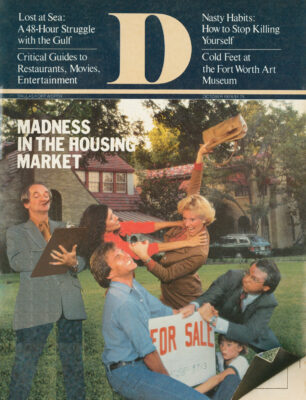It’s out of fashion to admit that there’s anything in human relations we can’t handle. Looking for the secret to a better self and a better life, Americans have hit on the word “control.” Bestsellers are written about it – How to Take Charge of Your Life; How to Spend Your Time Wisely and Well; How to Be Your Own Best Friend; How to Say No and Not Feel Guilty; Pulling Your Own Strings: Dynamic Techniques for Confidently Enjoying Your Life, Your Way, Without Being Manipulated. Define your intentions to others, announce the limits of what you will do, stand firm. You’ll be in control, on top, free of guilt.
It doesn’t work. I can cruise along happily, sitting boldly in the driver’s seat of my life, for a week at a time. Then one day, one quite ordinary day with nothing to warn me, something blows my control. I give my help and it isn’t enough; 1 say no and I feel guilty.
The first year I taught at the university, Bill Brammer was also teaching freshman composition. Bill had written one superb novel, The Cay Place, devastating to LBJ, Texas politics, and Austin life; then he had succumbed to drink, drugs, women, and the most stubborn writer’s block in history.
Now, even before his nine o’clock class, he trembled so badly that he could hardly light his cigarette. He was pathetically punctual, excruciatingly sober. His pale blue eyes held the truth about himself, and dumped it on you in conversation. He was here on a one-year appointment with no promise of renewal – a last chance, and he knew it. He wanted dignity, but he’d take survival. I liked him.
Nearly every morning when I came in, three days a week, he was waiting for me. Our offices were open, separated by chest-high bookcases used as partitions. He gave me time to get some coffee and pull out the notes for my first period class. In my nervous inexperience I virtually memorized every question for every class, like the straight half of a vaudeville routine. Then his head appeared over the bookcase, like John the Baptist’s on its tray.
“Hi. Come on in,” I said.
Deferentially, he sidled in. He’d been married twice and had lived with a succession of girls, each younger and cooler than the last. But I never saw the confidence or swagger of other days. With me he was always tentative.
Ritualistically we exchanged trivia, his night, my drive, the weather.
Then: “What’re you going to do for your classes today?” he said.
Carefully 1 told him, in great detail. I analyzed a story assigned on our common syllabus, I listed the questions I meant to ask, I reviewed the expected answers. I gave him all I could.
He listened intently, his pained blue eyes never leaving my face. When I finished, he nodded, once. “I think I’ll do that too,” he said.
Then he left.
With the semester’s end came the word that our classes were to be reviewed by our superiors, for an evaluation of the quality of our teaching. We were all scared, but it was too much for him, over forty, with his past, his life.
“I can’t do it,” he said. “What’ll I do?”
“You can do it,” I said. I wanted to buck him up, but I was uneasy for my own sake, and he annoyed me, dragged me down. I hated his weakness. “Cut it out, Bill. You act like a child. Just do what you always do, for God’s sake. Your students will help you.” I had heard they adored him.
After he was reviewed, he came in beaming. “They were great, those damned kids,” he said. “They really opened up and discussed. They were brilliant. I must have taught them something after all.” For a moment I saw the man he must have been.
Later that day I ran into his reviewer in the common room. “How did it go with Brammer?” I asked. “I hear his students are very good. Is that right?”
“Good at bullshit,” his reviewer answered, with a level gaze. “But not good enough.”
When I come out of the Safe-way, pushing a heavy shopping cart with four bags of groceries, I find a young man sitting in the passenger seat of my car. Or I thought it was my car. It is my car. This is where 1 parked, and that’s my license plate, and I see my daughter’s hairbrush on the back seat where she left it this morning.
“You’ve got the wrong yellow Volkswagen,” I say through the closed window, leaning toward him and smiling.
He rolls down the window.
“You’ve got the wrong car,” I say again. “Not hard to do – they must’ve made thousands of this color in ’73.”
I wish he’d hurry. It’s only six o’clock, but it’s already getting dark. A freezing rain is falling, the first of the year, with more expected tonight. Even through my coat and boots 1 feel the cold, and the parking lot is nearly empty.
“No,” he says. “This is the right car. I’ve been waiting for you, Mary.”
“I’m not Mary,” I say, “and you’re in the wrong car.”
“You are Mary.”
I look at him. He is tall and lanky, bent slightly to fit in the Volkswagen. His hair is long and brown, he has a beard and wire-rimmed glasses, he is dressed in jeans and a short-sleeved khaki shirt, his arm draped over the seat back is bare. I think: He looks like a student revolutionary. Then I realize it’s because of the expression in his eyes, and I back away.
“Look,” I say carefully, conscious that I have my lines right, “I don’t know what this is all about. But my name is not Mary, this is my car, and 1 don’t know you. It’s cold and I’m running late. 1 have to go home and cook supper. So won’t you please get out? Mary’s car must be around here somewhere, but this is not it.”
“Why do you act like you don’t know me, Mary? I’ve been waiting for you. I saw you go in the store, and I decided to wait for you in the car. Are you still mad at me? Don’t be mad, Mary.”
“I am not Mary!” My voice breaks, and I turn around abruptly and push the heavy cart back into the store. Safe, I look out the glass door. He sits there, not moving, a long shape in the car.
Keeping him in my sight, I ask the checker to get the manager, and 1 explain the situation to him as well as I can. The manager goes to call the police, and I step outside again to wait for them. The shape in the car doesn’t move.
When the two policemen drive up, I repeat my story for them once again. I have the sense that I’m in a movie or something. I don’t feel real. I don’t believe what I’m saying.
They don’t seem to, either. “How did ’ he choose your car?” one asks.
“I don’t know,” I say.
Together we walk out to the Volks. By this time it is quite dark. His window is still open and he sits there, as oblivious to the cold as he is to the police.
“Come on, Mary,” he says. “I’m tired ’ of waiting. I’ve been waiting a long time. Let’s go home.”
“Is your name Mary?” a policeman asks.
“No,” 1 say. “It’s Jo. My’name is Jo Brans, and I teach at SMU, and I want you to get him out of my car.” I hand over my driver’s license.
They study it, passing it back and forth with a flashlight. “It says here your name is Mary.”
I have forgotten that Texas wants first name and middle initial. “Well, actually it is,” I say, feeling like a liar. “I mean, my parents named me that, Mary Jo. But I don’t use Mary. No one calls me Mary.”
“I do,” he says from the car. “I have always called you Mary. You are Mary, too. She is my girl friend, this is her car, and her name is Mary. Mary, tell them who I am.”
I look at him. His eyes are wild and pleading behind the gleam of his glasses. His teeth are chattering with the cold, his bare arm goosefleshed. On his clammy forehead is a black smudge. I know I have never seen him before, but how can I be sure? Suddenly he looks like all my students, all my daughter’s friends.
The police are waiting, watching me curiously. I turn toward them, stalling:
Behind me, he speaks, in a perfectly lucid confident voice: “If you guys don’t mind waiting just a few minutes more, Mary and I will take you home.” He is addressing the empty back seat.
I try not to see as they hustle him out, frisk him, cuff him, shuffle him into theircar. I can’t shake off the feeling: I may beMary.
Get our weekly recap
Brings new meaning to the phrase Sunday Funday. No spam, ever.
Related Articles

Media
Will Evans Is Now Legit
The founder of Deep Vellum gets his flowers in the New York Times. But can I quibble?
By Tim Rogers

Restaurant Reviews
You Need to Try the Sunday Brunch at Petra and the Beast
Expect savory buns, super-tender fried chicken, slabs of smoked pork, and light cocktails at the acclaimed restaurant’s new Sunday brunch service.

Arts & Entertainment
DIFF Preview: How the Death of Its Subject Caused a Dallas Documentary to Shift Gears
Michael Rowley’s Racing Mister Fahrenheit, about the late Dallas businessman Bobby Haas, will premiere during the eight-day Dallas International Film Festival.
By Todd Jorgenson


